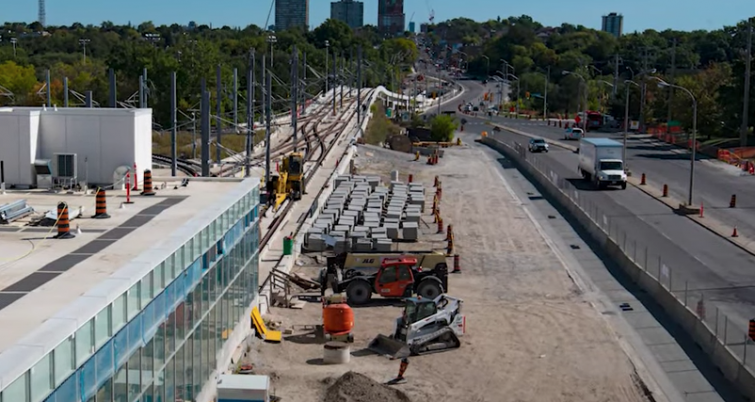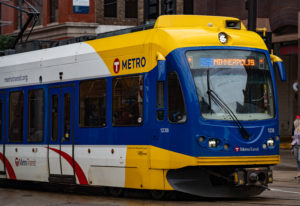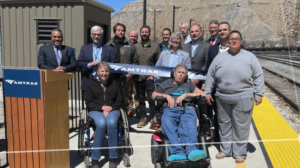June editorial: Rail projects and court room clashes
Written by RT&S Staff
My everyday sneakers did not match my tie, but it went with my role playing in court.
My everyday sneakers did not match my tie, but it went with my role playing in court.
It was the morning of my sister’s law school mock trial when I reached the bottom of my suitcase and grabbed a fistful of panic.
“I forgot my dress shoes!” I yelled. “I can’t believe this! Will this affect your grade?!” I asked while wincing in anticipated pain.
“Well, there is nothing we can do about it now. Besides, the guy you are playing is kind of a blue-collar person. The sneakers just might work,” responded my sister, who no doubt had bigger issues to worry about than my suddenly turned ragged ensemble.
The outfit miss pretty much sums up my thoughts about litigation, court cases, and the like. I really don’t care for them. They only drive up costs and give opportunists an expense account.
During the course of about a week in mid-May, the transit community was finalizing or starting several lawsuit battles. Maryland’s black-and-blue Purple Line project won its third and final lawsuit, one that accused the Army Corps of Engineers of violating Clean Water Act protections for streams and wetlands. The U.S. Court of Appeals for the 4th Circuit Court in Richmond, Va., said the U.S. Army Corps of Engineers properly issued a permit allowing Purple Line workers to discharge dredge and fill into wetlands and waterways.
Canada, however, was the hot bed for the hot seat. There, the city of Ottawa announced it was going after Confederation Line builder Rideau Transit Group for $131 million for missed deadlines that created carrying costs, delayed opening expenses, consultant expenditures, wages and salaries of employees, financial costs, and accounting expenses. If that was not enough, Ottawa also is going after its own insurance company for $361 million linked to the Rideau Street sinkhole in June 2016. The city submitted proof of loss statements last August and was expecting to get compensated for financial costs, legal and accounting expenses, anticipated lost gross revenue, and additional staffing costs. The insurers denied the claim.
Over in Toronto, the contractor for the Eglinton Crosstown LRT project won a decision with the Ontario Superior Court that dealt with the costs of COVID-19. Believing the pandemic created an emergency, Crosslinx wanted to renegotiate the contract with Metrolinx. The transit agency balked, and the Superior Court sided with Crosslinx, which could receive a portion of $134 million it has paid in additional costs to protect workers during the pandemic. The emergency also was behind construction delays, according to the builder.
This last lawsuit is what stirred up my mind. The COVID-19 pandemic stuck its thumb into a ton of operations and activities, so can we expect more court cases involving contractors hitting agencies with COVID costs? Transit agencies will be in recovery for quite some time as ridership levels creep up to some degree of normalcy. Lawsuits carry more potency than ever before. When you are dealing with mega projects, legal action is usually part of the process. Agencies should be forgiving when contractors approach with pandemic costs and delays, even if it deepens the financial crater. I think most are, but how many will prefer to clash?
Read more articles on passenger rail.





